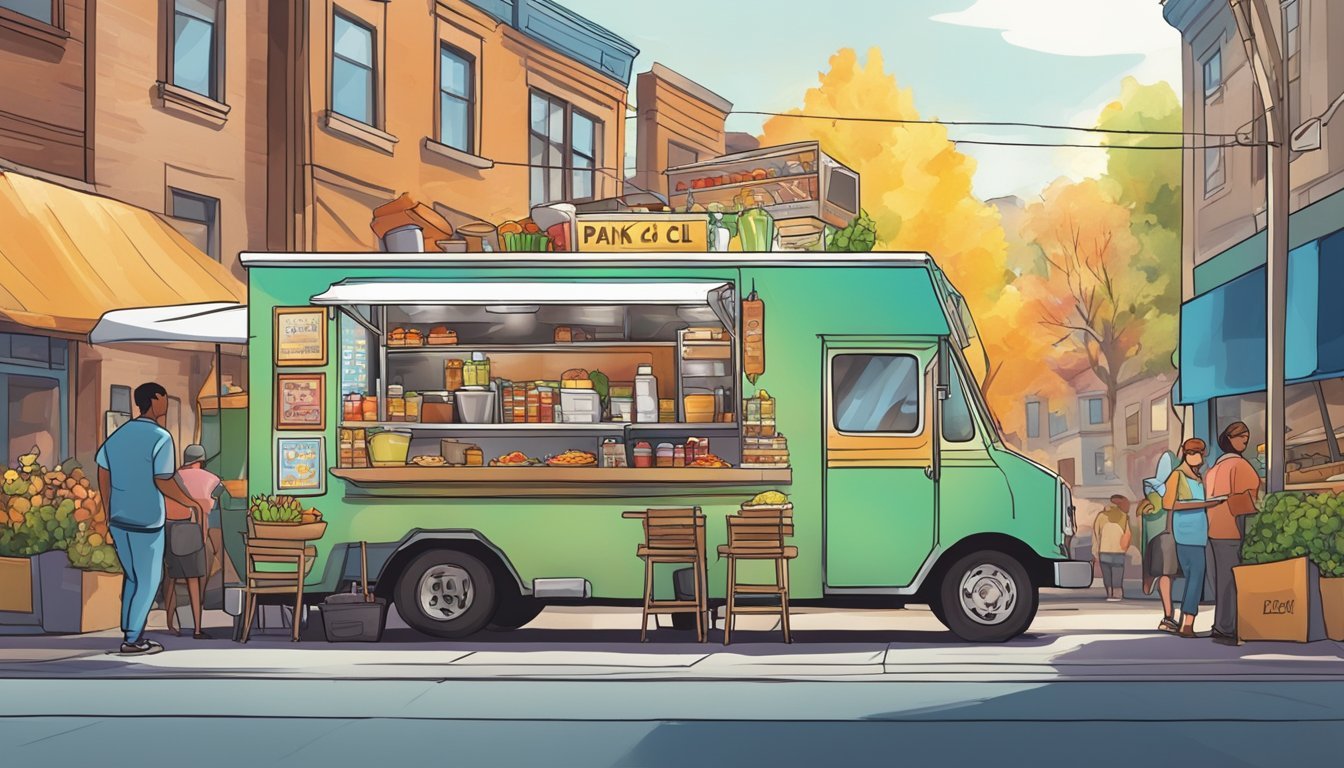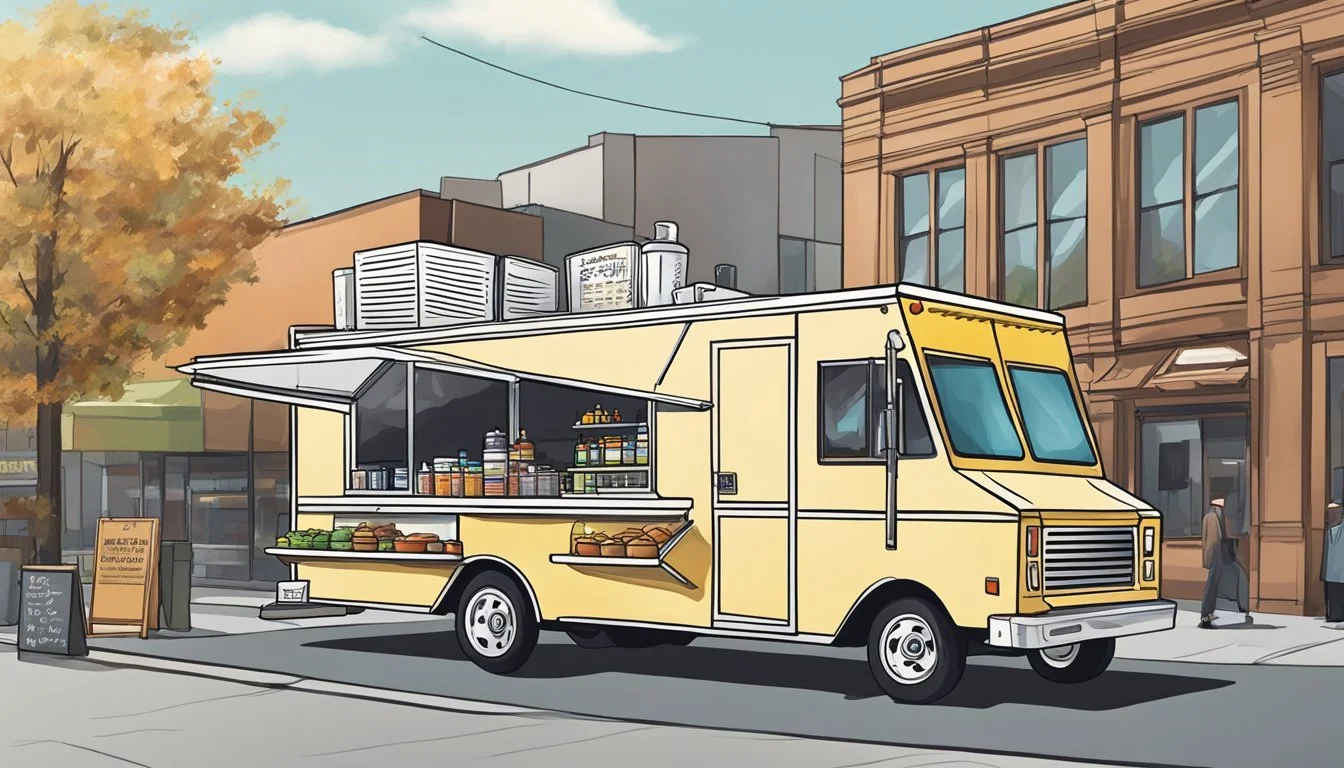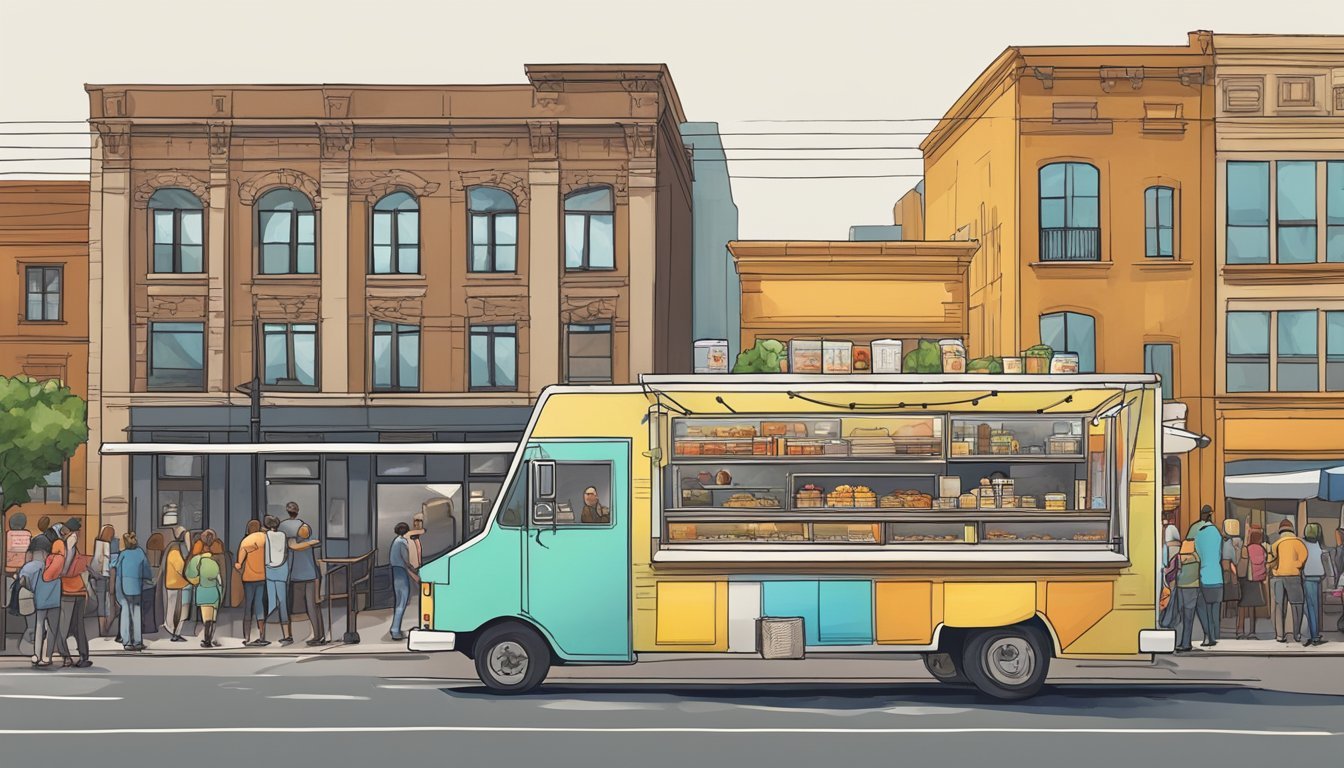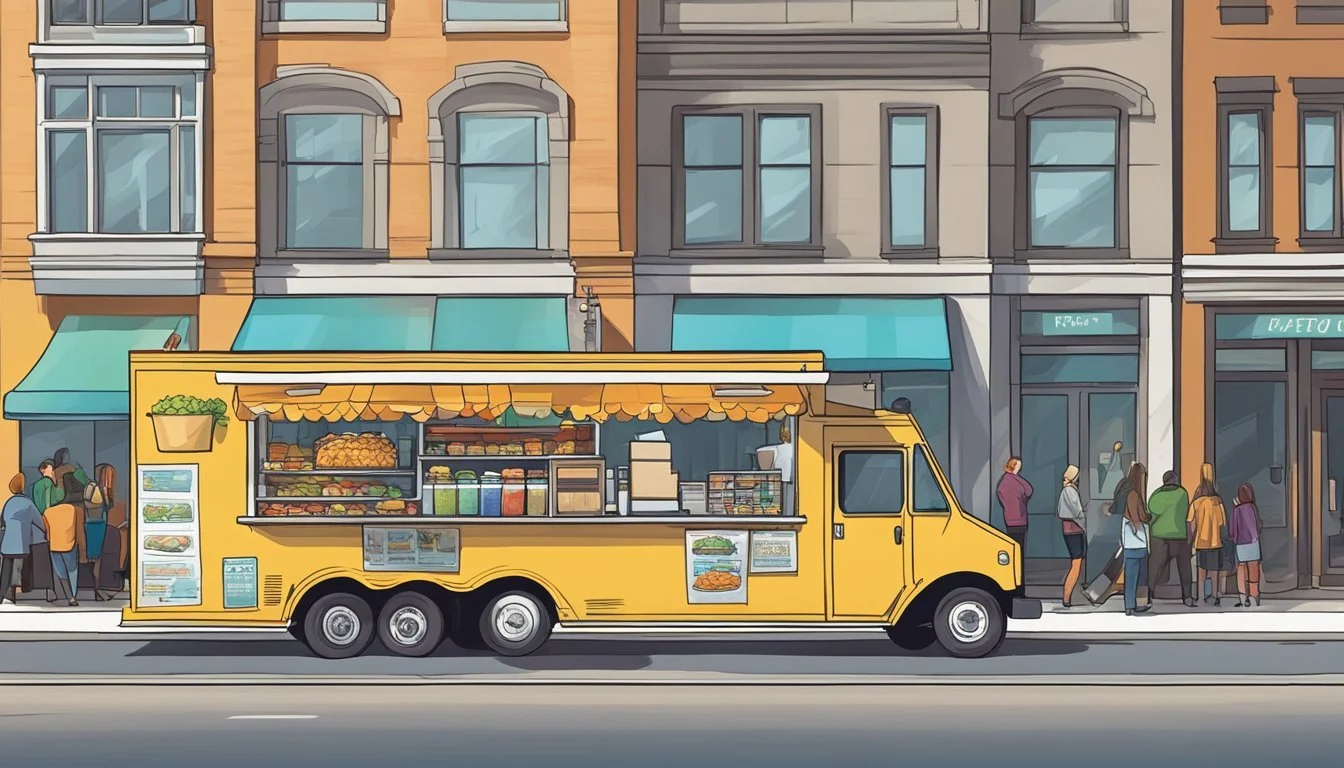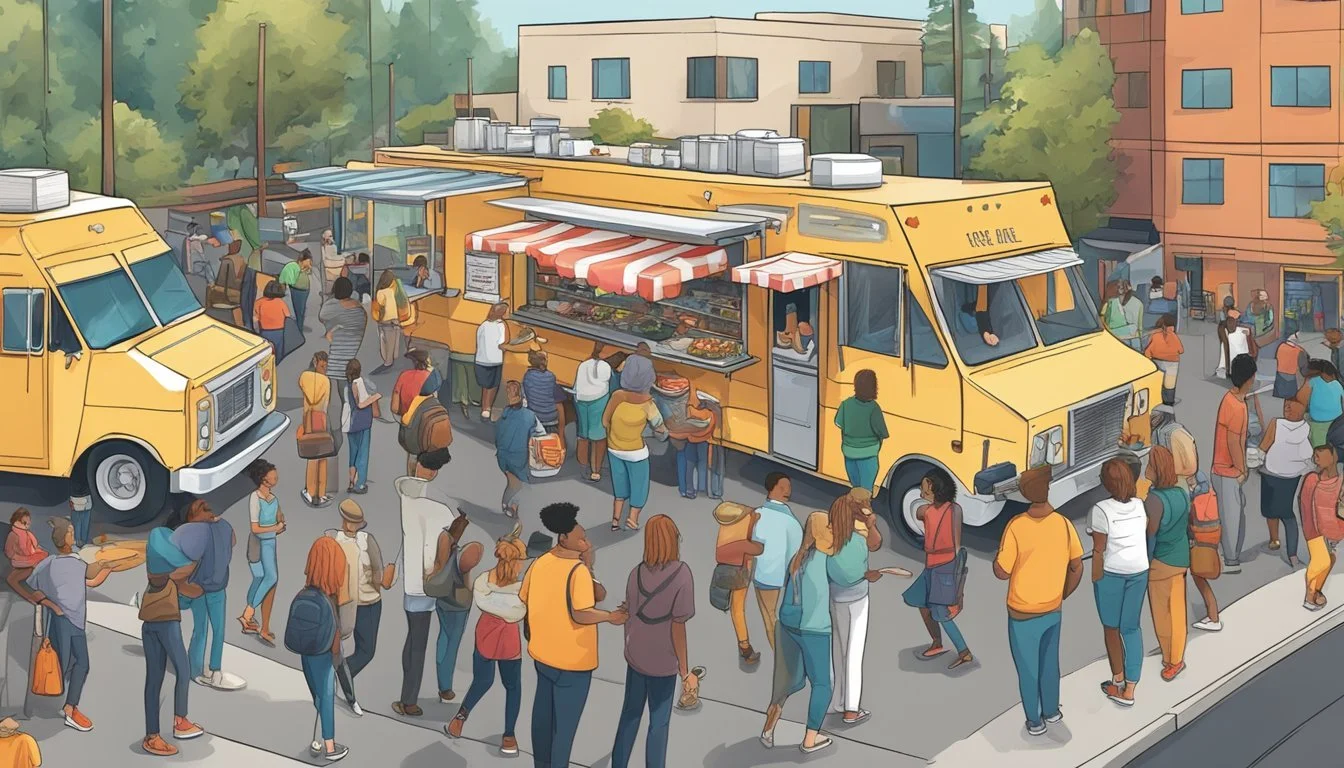Food Truck Laws Spokane, Washington
Navigating Regulations for Mobile Vendors
Food truck operations in Spokane, Washington, adhere to a set of regulations designed to balance entrepreneurial opportunity with community safety and welfare. These laws encompass various aspects, from health codes and safety standards to zoning and parking restrictions. Operators must navigate both state-mandated guidelines and local ordinances to ensure their mobile food businesses align with legal requirements.
State regulations, including those set forth by the Washington State Department of Labor & Industries, mandate the necessary steps for food trucks, including submitting plans for approval and scheduling inspections based on the equipment used. Locally, the Spokane City Council and Spokane Regional Health District have established specific guidelines to cater to the city's unique environment. This includes obtaining necessary permits, adhering to vending location guidelines, and abiding by health codes as per the local administrative code.
As food truck popularity grows, Spokane integrates these mobile food vendors within its urban landscape, acknowledging their role in enriching the local food scene and providing diverse culinary options to the community. However, it ensures that the operation of food trucks does not compromise public health standards or disrupt the orderly development of the municipality. Compliance with these laws and guidelines is critical for food truck owners to thrive and contribute positively to Spokane's dynamic food industry.
Establishing a Food Truck Business
Starting a food truck business in Spokane, Washington requires careful planning around business structure and compliance with local regulatory requirements. This involves selecting an appropriate business entity and obtaining the necessary permits and licenses to operate legally.
Business Structure and Registration
When establishing a food truck business, entrepreneurs must decide on a business structure. The Limited Liability Company (LLC) is a popular choice, offering both flexibility and limited liability protection. Once the business structure is determined, the next step is to register the business. This entails filing for an Entity Identification Number (EIN) with the IRS and registering with the Washington State Department of Revenue for a state business license.
Obtaining Necessary Permits and Licenses
Operating a food truck in Spokane requires several permits and licenses:
Business License: A state business license application can be completed through the Washington State Business Licensing Service.
Health Permit: The Spokane Regional Health District issues health permits that ensure food trucks meet health and safety standards. For details on the application, vendors can refer to the Mobile Food Vendor Guidesheet.
All food vendors must also comply with the Washington state administrative code and undergo regular inspections to maintain these credentials. It's essential for every food truck owner to stay current with these requirements to avoid potential legal issues and fines.
Regulatory Compliance
In Spokane, Washington, food trucks and their operators must adhere to strict regulatory compliance measures to ensure public safety and operational legitimacy. They are required to navigate a complex landscape of food safety regulations and vehicle standards.
Food Safety and Health Department Regulations
Food Safety Requirements: Food trucks in Spokane must comply with Washington State Retail Food Code, which encapsulates safety standards for serving or selling food. This includes obtaining a valid mobile unit food permit from the Spokane Regional Health District, which requires vendors to pass an inspection that assesses the risk of foodborne illnesses. The Health Department plays a critical role in this process, ensuring that mobile food vendors meet health and safety guidelines.
Inspection Checklist: Inspections assess various aspects of the food truck, including sanitation practices and temperature control. Operators can expect their food preparation areas and storage to be examined to prevent foodborne illness.
Certification: It is also mandatory to have at least one employee with a Certified Food Protection Manager (CFPM) certification, signaling their knowledge of food safety and ability to implement proper precautions.
Vehicle and Equipment Standards
Commercial Coach and Equipment Standards: Food trucks are classified as commercial coaches and must meet specific vehicle and equipment standards, such as maintaining an adequate electrical and drain system. They must be equipped to handle the needs of on-board equipment, ensuring nothing compromises the food's safety.
Fire Suppression and Propane Systems: Safety measures like a functional fire suppression system are crucial, especially when the food truck uses propane. Regular checks and maintenance of these systems are necessary to avoid potential hazards.
Inspection of Structural and Operational Systems: Spokane requires these vehicles to be inspected not just for their culinary setup but also for the structural integrity of modular buildings or trailers. This ensures that all parts of the food truck, from the cooking equipment to the seating arrangement, are safe for both the operators and the public.
Operators are advised to familiarize themselves with the full scope of regulations by consulting with the Spokane Regional Health District and by preparing their food truck to meet or exceed the mandated standards. Compliance is essential for a successful food truck business and for the protection of public health.
Location and Vending Operations
In Spokane, Washington, mobile food vendors and food carts must carefully select their vending locations to comply with local regulations and align with community needs. These locations can range from private property to designated public spaces in the city.
Identifying Viable Vending Locations
To operate a mobile food vendor business in Spokane, identifying permissible locations is essential. A map provided by the Spokane Regional Health District or local governments can guide vendors to appropriate temporary sites. Vendors must consider $60 application fee when evaluating potential sites on private property or in the public right-of-way. Every prospective location requires a clear understanding of both zone restrictions and the advantage of being in proximity to high-traffic areas such as Downtown Spokane.
Navigating Local Governments and Partnerships
Establishing a mobile food vending operation often requires navigating partnerships with entities such as city council, Downtown Spokane Partnership, and property owners. A detailed proposal outlining the intended sales plan, impact on the community, and benefits to the local food scene should be submitted to City Hall. Effective collaboration between restaurants and food carts can foster a welcoming environment for all parties involved.
Financial Considerations
When starting or operating a food truck in Spokane, Washington, owners must meticulously evaluate financial obligations. These span from initial setup costs to ongoing operational expenses, including regulatory fees and insurance premiums.
Cost Analysis and Budgeting
A comprehensive cost analysis is essential for any food truck venture in Spokane. Prospective owners should consider the one-time costs for purchasing or leasing a food truck, which can range significantly based on whether the vehicle is new or used and the level of customization required. The acquisition of a truck is the foremost expense, but outfitting it with the necessary kitchen equipment tailored to the menu offerings will also add to the startup costs.
Operating expenses include but are not limited to:
Fuel costs: Impacted by the truck's efficiency and travel routes.
Membership dues: Which may be required for participation in food truck associations or events.
Consulting fees: For legal and accounting services to ensure compliance with local regulations.
Taxes: Sales tax, payroll tax, and property tax if applicable.
Food truck owners must continuously monitor these costs against their revenue to maintain a healthy financial status. Budgeting effectively is vital for sustainability, with a keen eye on fluctuating expenses like ingredients and fuel prices.
Insurance and Risk Management
Food trucks in Spokane must secure the appropriate insurance policies to protect against liability and risk. A standard approach to insurance usually involves obtaining:
General liability insurance: Covers claims from accidents or injuries that occur in or around the truck.
Property insurance: For damage to the truck itself and the equipment inside.
Workers' compensation: If the food truck employs staff.
Risk management also entails regular maintenance of the vehicle to prevent breakdowns that can result in lost business. Insurance costs will vary depending on coverage levels and the provider. Owners should compare quotes and policies to find a balance between comprehensive coverage and manageable premiums. It's advisable to review and adjust insurance coverage annually, considering any changes in operations, such as menu expansion or increased territory coverage.
Growth and Community Engagement
The food truck scene in Spokane has seen considerable growth, with an emphasis on engagement and fostering relationships within the community. These mobile kitchens are becoming a staple at local events and have succeeded in building a dedicated customer base through strategic partnerships and public interaction.
Participation in Local Events
Food trucks in Spokane are regular participants in local events, which not only boosts their visibility but also offers a chance for community integration. They serve a variety of culinary options, turning public gatherings into diverse food havens that reflect Spokane's rich palate. Whether it's a street fair, farmers market, or city festival, one can expect to find a fleet of food trucks catering to the tastes and preferences of the attendees.
Creating a Loyal Customer Base
Successful food trucks are leveraging social media and word-of-mouth to cultivate a loyal customer base. Regular updates on their locations, menu specials, and participatory polls on new dishes encourage regular customer engagement. By addressing feedback and comments in real-time, these mobile businesses show they value customer input, further solidifying their sales and relationship with the community.
Association and Industry Resources
In Spokane, Washington, food truck owners can greatly benefit from aligning with industry associations that offer a wealth of resources focused on regulation navigation, safety standards, and continuous education. These organizations provide indispensable support through memberships that facilitate compliance and ensure industry success.
Becoming a Member of Industry Associations
Membership with industry associations such as the Washington State Food Truck Association is an essential step for mobile food vendors. By becoming a member, truck owners gain access to a network of peers and resources including regulatory updates, guidance on safety standards, and procedures tailored to the mobile food industry. Membership dues are an investment into the operational foundation of any food truck venture, allowing vendors to stay informed and connected.
Utilizing Resources for Education and Support
Taking advantage of resources offered by these associations can help food truck managers and operators with training, problem-solving, and research into best practices for running a successful mobile food unit. For example, access to commissary kitchen spaces and the latest updates on health and safety training helps to ensure food trucks meet health department requirements. Additionally, resources like frequently asked questions sections and member-driven forums offer immediate solutions to common issues faced in the field.
Legal and Administrative Considerations
In Spokane, Washington, food truck operators must carefully adhere to a set of legal requirements and administrative protocols. Comprehension of these rules ensures smooth operation within the local jurisdiction.
Navigating Spokane's Food Truck Laws
Food trucks in Spokane are defined as mobile food vending units, and they are subject to the regulations outlined by the Washington State Administrative Code (WAC 246-215). Each vendor must obtain the necessary permits and pass a rigorous plan review process before commencing operations. To legally operate, the L&I insignia of approval is a must-have for food delivery trucks, with the Department of Labor & Industries overseeing the inspection of these units. For more details on the permits and plan review process, the PDF Mobile Food Vendor Guidesheet - Spokane, Washington offers a comprehensive overview.
Understanding Zoning and Parking Regulations
Local governments, including Spokane's, have established zoning and parking regulations that dictate where and how food trucks can operate. These rules are crafted with input from property owners and the mobile food vending industry to balance business opportunities with public safety and urban planning objectives. Spokane has specific requirements for parking spaces for mobile vendors, whether they operate from a food delivery truck or a push cart. The city has also engaged in various pilot programs aimed at integrating food trucks into the established commercial landscape without causing disruption. Regulations also address aspects like the distance from brick-and-mortar restaurants and the duration a food truck may occupy a particular location. For comprehensive information on Tacoma's unique regulations, refer to the Food Trucks & Trailers - Labor & Industries section of Washington State's official site.

